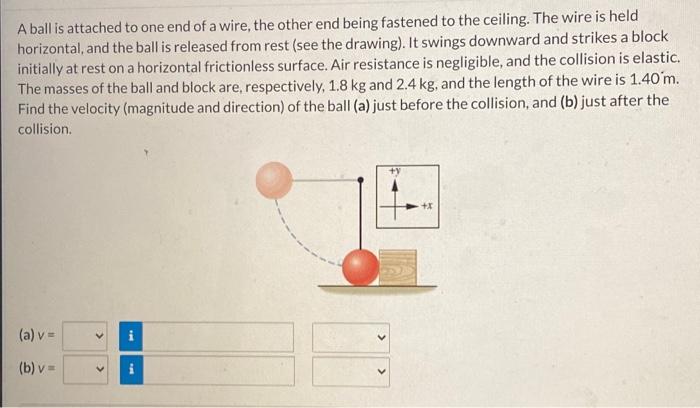A ball is attached to one end of a wire, the other end being fastened to the ceiling. The wire is held horizontal, and the ball is released from rest (see the drawing). It swings downward and strikes a block initially at rest on a horizontal frictionless surface. Air resistance is negligible, and the collision is elastic. The masses of the ball and block are, respectively, 1.8 kg and 2.4 kg, and the length of the wire is 1.40 m. Find the velocity (magnitude and direction) of the ball (a) just before the collision, and (b) just after the collision. (a) v = (b) v =
